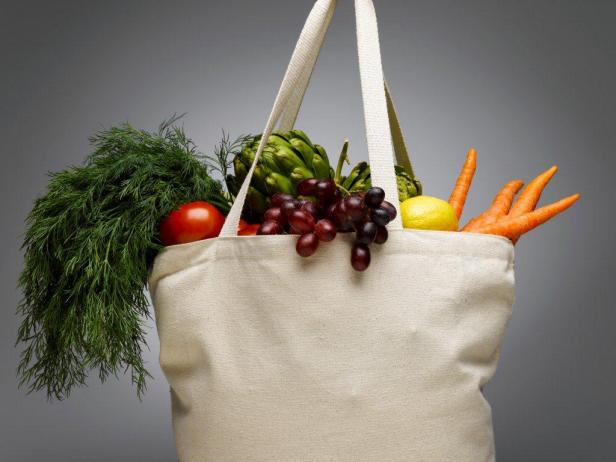Better Food Choices: Making the Switch

Healthy eating can be defined in many ways and has different meanings for different people. But at the end of the day it's about making small, simple, upgrades to your current diet to improve your overall health. That doesn’t mean you have to toss all the processed foods in your pantry today or say good-bye to your favorite sweets forever. It means starting where you are and using these tips to make healthier food choices moving forward.
To start, eliminate as many processed foods as possible in favor of the real deal. This may mean some extra planning and some extra time in the kitchen, but eating real, whole foods in their natural form (think fresh produce and whole grains) is an easy way to clean up your diet.
Assess your diet: Start writing down what you eat to figure out what foods you consume most often and start buying the organic version of those foods, especially those on the EWG's Dirty Dozen list. Organic foods are free of hormones, antibiotics and pesticides and are cleaner food choices for you, the environment and the people that grow them.
Prioritize your organic purchases: As mentioned above, the foods we eat most often should be at the top of the list when it comes to making the switch. Though it is scientifically controversial whether or not pesticides, antibiotics and hormones found in food have long term health effects, consuming chemicals is never a good thing. Here are some other foods to be aware of:
- Meats and Poultry: Chemicals like pesticides, hormones and antibiotics can build up in the fatty tissue of animals (just like humans) so it is wise to choose organic meats and poultry. Money-saving tip: lean meats and poultry like boneless, skinless chicken breasts and beef tenderloin cuts will have fewer residual chemicals than their higher-fat counterparts like chicken legs, chicken skin and fattier meats like rib-eye.
- Dairy: Like meats, pesticides, hormones and antibiotics have been found in conventional (non-organic) dairy. Money-saving tip: Look for hormone-free, conventional dairy products if organic doesn't fit your budget.
- Fish: Studies have shown that farm-raised fish are higher in total fat and lower in anti-inflammatory omega-3 fatty acids than wild-caught fish. Farm-raised fish can also contain chemicals and antibiotics which are used in raising the fish. Money-saving Tip: Talk to your fish monger; some farm-raised fish are raised without chemicals or antibiotics, using more sustainable practices.
- Peanuts: More than 99 percent of peanut farms use conventional farming practices and considering the amount of peanut butter many people consume (especially children) it may be wise to choose organic. Also, conventional peanut butters tend to have more additives and sugar. Money-saving tip: Buy nuts in bulk and make your own nut butter -- just puree the nuts in a food processor until it reaches the desired consistency. Choose raw nuts; roasted nuts have a tendency to become rancid more quickly.
- Fruits and Veggies: See below for a list of foods considered to be the "dirtiest," but if you can't remember, a good rule of thumb is, if you eat the skin as well as the flesh, buy organic.
Money-saving tip: Purchase conventional fruits and vegetables like bananas, citrus and melons as we remove the outer layer and eat only the inside which reduces the amount of chemicals consumed. The following list of produce is considered “safe” which means this list has tested low for residual chemicals.
- Genetically Modified Foods (GMOs): Though the health risks of consuming GMOs is a controversial topic, it's good to be aware that we consume them often when eating conventional foods, especially processed foods. Most conventional soy and corn-based foods contain GMOs and canola oil is high on the list as well. Money-saving tip: Avoid processed foods that use soy and corn derivatives as additives and preservatives.
- Coffee/Tea: Produced in countries spanning the globe, coffee beans as well as tea are subject to the regulations of the country where it is produced. The rules in countries outside of the US are often more lax so the consumer has less control of the growing practices and chemicals being used. Play it safe and buy organic when possible.
- Chocolate: Like coffee beans, cocoa beans are grown all over the world which means varying regulations and growing practices. Money-saving tip: Buy organic but use sparingly. Grate high-quality dark chocolate with a micro-plane so a little will go a long way.
- Wine: Grapes are considered to be one of the “dirtier” fruits and compounded with varying growing regulations in wine-producing countries this beverage is one you might want to consider buying organic.
Buy Local: Locally-sourced foods are rich in nutrients as the travel time from farm to plate is considerably shorter for foods grown within a 100 mile radius of your home. Produce begins to lose nutrients once it is picked so the faster we consume them, the more good stuff we consume as well. Money-saving tip: Farmers market produce is often less expensive and tastier than its superstore counterparts. Talk to your farmer: The produce they sell may not be “certified organic” but many local farms follow organic growing practices (they just can't afford to become certified).
Making the switch does not have to be overwhelming, all-consuming or a financial burden. Even small changes like ditching the microwave meal for a home cooked version are a step in the right direction. Set small goals like cooking twice a week, making the switch from a processed food to fresh at each shopping trip, or choosing the organic version of one item that tops your grocery list each week and you are well on your way to a healthier you.
Katie Cavuto Boyle, MS, RD, is a registered dietitian, personal chef and owner of HealthyBites, LLC. See Katie's full bio »
































